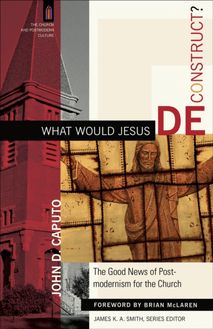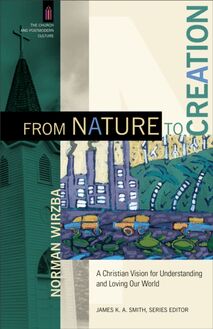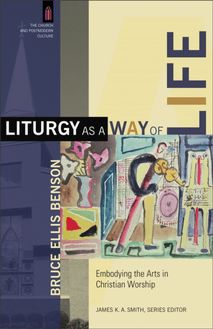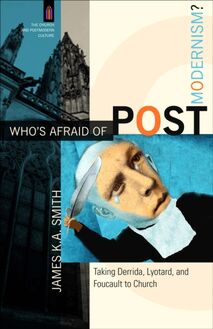-
 Univers
Univers
-
 Ebooks
Ebooks
-
 Livres audio
Livres audio
-
 Presse
Presse
-
 Podcasts
Podcasts
-
 BD
BD
-
 Documents
Documents
-
- Cours
- Révisions
- Ressources pédagogiques
- Sciences de l’éducation
- Manuels scolaires
- Langues
- Travaux de classe
- Annales de BEP
- Etudes supérieures
- Maternelle et primaire
- Fiches de lecture
- Orientation scolaire
- Méthodologie
- Corrigés de devoir
- Annales d’examens et concours
- Annales du bac
- Annales du brevet
- Rapports de stage
La lecture à portée de main
Vous pourrez modifier la taille du texte de cet ouvrage
Découvre YouScribe en t'inscrivant gratuitement
Je m'inscrisFrom Nature to Creation (The Church and Postmodern Culture) , livre ebook
Découvre YouScribe en t'inscrivant gratuitement
Je m'inscrisEn savoir plus
Vous pourrez modifier la taille du texte de cet ouvrage
En savoir plus

Description
Sujets
Informations
| Publié par | Baker Publishing Group |
| Date de parution | 23 septembre 2015 |
| Nombre de lectures | 0 |
| EAN13 | 9781493400089 |
| Langue | English |
| Poids de l'ouvrage | 1 Mo |
Informations légales : prix de location à la page 0,0576€. Cette information est donnée uniquement à titre indicatif conformément à la législation en vigueur.
Extrait
Also available in the series ( www.churchandpomo.org )
James K. A. Smith, Who’s Afraid of Postmodernism? Taking Derrida, Lyotard, and Foucault to Church
John D. Caputo, What Would Jesus Deconstruct? The Good News of Postmodernism for the Church
Carl Raschke, GloboChrist: The Great Commission Takes a Postmodern Turn
Graham Ward, The Politics of Discipleship: Becoming Postmaterial Citizens
Merold Westphal, Whose Community? Which Interpretation? Philosophical Hermeneutics for the Church
Daniel M. Bell Jr., The Economy of Desire: Christianity and Capitalism in a Postmodern World
Bruce Ellis Benson, Liturgy as a Way of Life: Embodying the Arts in Christian Worship
James K. A. Smith, Who’s Afraid of Relativism? Community, Contingency, and Creaturehood
Christian Scharen, Fieldwork in Theology: Exploring the Social Context of God’s Work in the World
© 2015 by Norman Wirzba
Published by Baker Academic
a division of Baker Publishing Group
P.O. Box 6287, Grand Rapids, MI 49516-6287
www . bakeracademic . com
Ebook edition created 2015
All rights reserved. No part of this publication may be reproduced, stored in a retrieval system, or transmitted in any form or by any means—for example, electronic, photocopy, recording—without the prior written permission of the publisher. The only exception is brief quotations in printed reviews.
Library of Congress Cataloging-in-Publication Data is on file at the Library of Congress, Washington, DC.
ISBN 978-1-4934-0008-9
Scripture quotations are from the New Revised Standard Version of the Bible, copyright © 1989, by the Division of Christian Education of the National Council of the Churches of Christ in the United States of America. Used by permission. All rights reserved.
“This is not a book about polar bears, parakeets, or some new scheme for ‘saving the earth.’ It is a book about why Christians need to reclaim ‘the human art of creaturely life.’ Wirzba shows why creation, incarnation, and redemption are intricately bound up in bodies—our own, other creatures’, and the earth’s—and why if we’re to care for those bodies we need to adopt an ‘iconic vision of the world’ that only Jesus makes possible. A deeply hopeful book written in prose both artful and lucid, this confirms Norman Wirzba’s place as one of the finest theologians writing today.”
— Fred Bahnson , author of Soil and Sacrament ; director, Food, Faith, and Religious Leadership Initiative, Wake Forest University School of Divinity
“In a moment when conversations about environmental stewardship have become divisive and polarizing, Wirzba offers a level-headed ‘peace; be still.’ He reminds Christians that our world was created and is sustained by an intentional Craftsman who has asked us to steward it well. Wirzba’s words are fertile soil, fresh air, and a bountiful harvest that will stir your passion for creation a nd stoke your love for the Creator. This soon-to-be-classic text on the theology of creation has come to us not a moment too soon.”
— Jonathan Merritt , author of Jesus Is Better Than You Imagined ; senior columnist at Religion News Service
“In this wise, prophetic, and expansive book, Norman Wirzba offers us an extended meditation on creation with compelling eloquence. Here is a theology that is (literally) grounded in the gift of soil. A multidisciplinary treatise expertly engaging philosophy, theology, literature, and ecology, this book moves effortlessly from postmodern theory to agricultural policy, from biblical interpretation to gardening, from economics to a spirituality of gratitude. Wirzba invites us into a world of interdependent intimacy, sympathy, hospitality, delight, and love. This book is a generous gift that bears witness to a world characterized as gift.”
— Brian J. Walsh , University of Toronto; author of Kicking at the Darkness: Bruce Cockburn and the Christian Imagination
“In this brief book, Norman Wirzba casts a profound vision of creaturely life, of what it means to live as creatures within an interconnected creation that embodies the love and goodness of the Creator. Standing in stark contrast to modern philosophical conceptions of nature, Wirzba’s work is sure to inspire a wave of theological explorations in both the academy and the church.”
— C. Christopher Smith , founding editor, The Englewood Review of Books ; coauthor of Slow Church
For Bruce Ellis Benson, John D. Caputo, Adriaan Peperzak, and Merold Westphal
Contents
Cover i
Series Page ii
Title Page iii
Copyright Page iv
Endorsements v
Dedication vi
Series Preface ix
Acknowledgments xi
Introduction 1
1. On Not Knowing Where or Who We Are 6
2. Idolizing Nature 31
3. Perceiving Creation 60
4. The Human Art of Creaturely Life 95
5. Giving Thanks 130
Index 159
Back Cover 163
Series Preface
Current discussions in the church—from emergent “postmodern” congregations to mainline “missional” congregations—are increasingly grappling with philosophical and theoretical questions related to postmodernity. In fact, it could be argued that developments in postmodern theory (especially questions of “post-foundationalist” epistemologies) have contributed to the breakdown of former barriers between evangelical, mainline, and Catholic faith communities. Postliberalism—a related “effect” of postmodernism—has engendered a new, confessional ecumenism wherein we find nondenominational evangelical congregations, mainline Protestant churches, and Catholic parishes all wrestling with the challenges of postmodernism and drawing on the culture of postmodernity as an opportunity for rethinking the shape of our churches.
This context presents an exciting opportunity for contemporary philosophy and critical theory to “hit the ground,” so to speak, by allowing high-level work in postmodern theory to serve the church’s practice—including all the kinds of congregations and communions noted above. The goal of this series is to bring together high-profile theorists in continental philosophy and contemporary theology to write for a broad, nonspecialist audience interested in the impact of postmodern theory on the faith and practice of the church. Each book in the series will, from different angles and with different questions, undertake to answer questions such as, What does postmodern theory have to say about the shape of the church? How should concrete, in-the-pew and on-the-ground religious practices be impacted by postmodernism? What should the church look like in postmodernity? What has Paris to do with Jerusalem?
The series is ecumenical not only with respect to its ecclesial destinations but also with respect to the facets of continental philosophy and theory that are represented. A wide variety of theoretical commitments will be included, ranging from deconstruction to Radical Orthodoxy, including voices from Badiou to Žižek and the usual suspects in between (Nietzsche, Heidegger, Levinas, Derrida, Foucault, Irigaray, Rorty, and others). Insofar as postmodernism occasions a retrieval of ancient sources, these contemporary sources will be brought into dialogue with Augustine, Irenaeus, Aquinas, and other resources. Drawing on the wisdom of established scholars in the field, the series will provide accessible introductions to postmodern thought with the specific aim of exploring its impact on ecclesial practice. The books are offered, one might say, as French lessons for the church.
Acknowledgments
It is a pleasure for me to acknowledge and thank the many people who have made this book possible. Colleagues and friends at various institutions invited me to give lectures that eventually made their way into the chapters here. Special thanks go to the Philosophy Department at Calvin College for their invitation to give the 2013 Jellema Lectures (these eventually became chapters 2 and 3), and to Duke Divinity School, Wake Forest University’s School of Divinity, and Blessed Earth for hosting a 2013 conference on farming and faith (called “Summoned toward Wholeness”) at which a much earlier version of chapter 5 was presented. A version of chapter 4 was first presented at the Society for Continental Philosophy and Theology’s biannual meeting in 2012 and then published in Pro Ecclesia (22, no. 1 [Winter 2013]).
I also thank the staff at the Louisville Institute for awarding me a 2014 Sabbatical Grant for Researchers, and the Association of Theological Schools and the Henry Luce Foundation for naming me a 2014–2015 Henry Luce III Fellow. The Colossian Forum has also given this work a welcome scholarly forum in which the ideas of this book could be heard and honed. The combined generous financial support of these institutions has been an encouragement, and has given me the needed time to bring this project to completion. Special thanks go to my dean, Richard Hays, for granting me the leave time to focus and write.
Several friends discussed with me and/or read portions of this book in draft stages, making valuable suggestions for improvement: Fred Bahnson, Wendell Berry, Brian Curry, Ellen Davis, Celia Deane-Drummond, Joelle Hathaway, Stanley Hauerwas, Judith Heyhoe, Willie Jennings, Randy Maddox, Jamie Smith, Bron Taylor, Merold Westphal, Anna Wirzba, Emily Wirzba, and Gretchen Ziegenhals. I am especially grateful to Mari Jorstad for compiling the index of this book. Their multiple kindnesses are a testimony to the love of God, and their friendship is a daily reminder of why gratitude is the fundamental disposition of a faithful life. Thank you!
I have dedicated this book to four friends and mentors—Merold Westphal, Adriaan Peperzak, Jack Caputo, and Bruce Ellis Benson—who have been with me from the beginning as I have navigated the terrain of continental philosophy and Christian thought. It has been a joy to share this journey with such gifted and generous human beings.
Introduction
For too long too many Christians have thought that the point of faith is to prepare people to enter a heavenly realm “somewhere beyo
-
 Univers
Univers
-
 Ebooks
Ebooks
-
 Livres audio
Livres audio
-
 Presse
Presse
-
 Podcasts
Podcasts
-
 BD
BD
-
 Documents
Documents
-
Jeunesse
-
Littérature
-
Ressources professionnelles
-
Santé et bien-être
-
Savoirs
-
Education
-
Loisirs et hobbies
-
Art, musique et cinéma
-
Actualité et débat de société
-
Jeunesse
-
Littérature
-
Ressources professionnelles
-
Santé et bien-être
-
Savoirs
-
Education
-
Loisirs et hobbies
-
Art, musique et cinéma
-
Actualité et débat de société
-
Actualités
-
Lifestyle
-
Presse jeunesse
-
Presse professionnelle
-
Pratique
-
Presse sportive
-
Presse internationale
-
Culture & Médias
-
Action et Aventures
-
Science-fiction et Fantasy
-
Société
-
Jeunesse
-
Littérature
-
Ressources professionnelles
-
Santé et bien-être
-
Savoirs
-
Education
-
Loisirs et hobbies
-
Art, musique et cinéma
-
Actualité et débat de société
- Cours
- Révisions
- Ressources pédagogiques
- Sciences de l’éducation
- Manuels scolaires
- Langues
- Travaux de classe
- Annales de BEP
- Etudes supérieures
- Maternelle et primaire
- Fiches de lecture
- Orientation scolaire
- Méthodologie
- Corrigés de devoir
- Annales d’examens et concours
- Annales du bac
- Annales du brevet
- Rapports de stage















